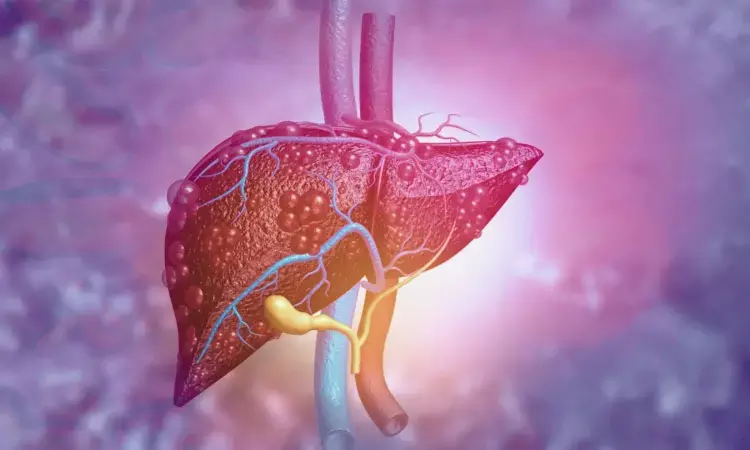- Home
- Medical news & Guidelines
- Anesthesiology
- Cardiology and CTVS
- Critical Care
- Dentistry
- Dermatology
- Diabetes and Endocrinology
- ENT
- Gastroenterology
- Medicine
- Nephrology
- Neurology
- Obstretics-Gynaecology
- Oncology
- Ophthalmology
- Orthopaedics
- Pediatrics-Neonatology
- Psychiatry
- Pulmonology
- Radiology
- Surgery
- Urology
- Laboratory Medicine
- Diet
- Nursing
- Paramedical
- Physiotherapy
- Health news
- Fact Check
- Bone Health Fact Check
- Brain Health Fact Check
- Cancer Related Fact Check
- Child Care Fact Check
- Dental and oral health fact check
- Diabetes and metabolic health fact check
- Diet and Nutrition Fact Check
- Eye and ENT Care Fact Check
- Fitness fact check
- Gut health fact check
- Heart health fact check
- Kidney health fact check
- Medical education fact check
- Men's health fact check
- Respiratory fact check
- Skin and hair care fact check
- Vaccine and Immunization fact check
- Women's health fact check
- AYUSH
- State News
- Andaman and Nicobar Islands
- Andhra Pradesh
- Arunachal Pradesh
- Assam
- Bihar
- Chandigarh
- Chattisgarh
- Dadra and Nagar Haveli
- Daman and Diu
- Delhi
- Goa
- Gujarat
- Haryana
- Himachal Pradesh
- Jammu & Kashmir
- Jharkhand
- Karnataka
- Kerala
- Ladakh
- Lakshadweep
- Madhya Pradesh
- Maharashtra
- Manipur
- Meghalaya
- Mizoram
- Nagaland
- Odisha
- Puducherry
- Punjab
- Rajasthan
- Sikkim
- Tamil Nadu
- Telangana
- Tripura
- Uttar Pradesh
- Uttrakhand
- West Bengal
- Medical Education
- Industry
Women Suffering From MASLD at Greater Risk for Heart Events Than Men, Meta-Analysis Finds

Iran: A comprehensive meta-analysis has revealed that women with metabolic dysfunction-associated steatotic liver disease (MASLD) face a significantly higher risk of experiencing fatal and non-fatal cardiovascular (CV) events compared to men. The findings, published in Diabetes, Obesity and Metabolism, highlight the importance of sex-specific cardiovascular risk assessment in individuals with MASLD.
"The meta-analysis of 18.5 million adults found that MASLD significantly raises cardiovascular risk, with women facing a greater threat than men (HR 1.59 vs. 1.37). The risk more than doubled in women with severe disease (HR 2.40), emphasizing the need for sex-specific cardiovascular risk assessment in MASLD management," the researchers reported.
The study was conducted by Mohamad Jamalinia and colleagues from the Gastroenterohepatology Research Center at Shiraz University of Medical Sciences, Iran. The researchers aimed to clarify how sex differences influence the cardiovascular risks associated with MASLD, an increasingly prevalent liver condition linked to obesity, insulin resistance, and metabolic syndrome.
To explore this, the team analyzed data from 36 observational cohort studies comprising approximately 18.5 million individuals. Among them, about 25% were diagnosed with MASLD, and nearly half of the total population were women. The mean age of participants was 50.2 years, and the median follow-up period was 6.9 years.
The key findings were as follows:
- Approximately 515,000 fatal and non-fatal cardiovascular events were recorded during the study period, with 42% occurring in women.
- MASLD was linked to a higher risk of cardiovascular events in both men and women.
- Women showed a greater risk, with a pooled hazard ratio (HR) of 1.59, compared to 1.37 in men.
- The difference in cardiovascular risk between sexes was statistically significant.
- Greater severity of MASLD, assessed through biomarkers, imaging, and histology, further increased cardiovascular risk.
- In women with severe MASLD, the risk of cardiovascular events more than doubled (HR 2.40).
- These results remained consistent in sensitivity analyses.
- No significant publication bias was found in the analysis.
The authors emphasized that these findings have critical clinical implications. While MASLD is often under-recognized as a cardiovascular risk factor, the results of this large-scale analysis highlight the urgency of integrating liver health into cardiovascular risk assessments, particularly for women. Current guidelines often overlook sex-specific differences in disease progression and outcomes, leading to underdiagnosis or suboptimal management in female patients.
The authors concluded, "The meta-analysis sheds light on the disproportionate burden of cardiovascular complications among women with MASLD and calls for tailored strategies in both screening and treatment. As the global burden of metabolic liver disease continues to rise, sex-specific approaches to cardiovascular risk management could prove essential in improving long-term outcomes."
Reference:
Jamalinia M, Zare F, Mantovani A, Targher G, Lonardo A. Metabolic dysfunction-associated steatotic liver disease and sex-specific risk of fatal and non-fatal cardiovascular events: A meta-analysis. Diabetes Obes Metab. 2025 Jun 25. doi: 10.1111/dom.16568. Epub ahead of print. PMID: 40566760.
Dr Kamal Kant Kohli-MBBS, DTCD- a chest specialist with more than 30 years of practice and a flair for writing clinical articles, Dr Kamal Kant Kohli joined Medical Dialogues as a Chief Editor of Medical News. Besides writing articles, as an editor, he proofreads and verifies all the medical content published on Medical Dialogues including those coming from journals, studies,medical conferences,guidelines etc. Email: drkohli@medicaldialogues.in. Contact no. 011-43720751


